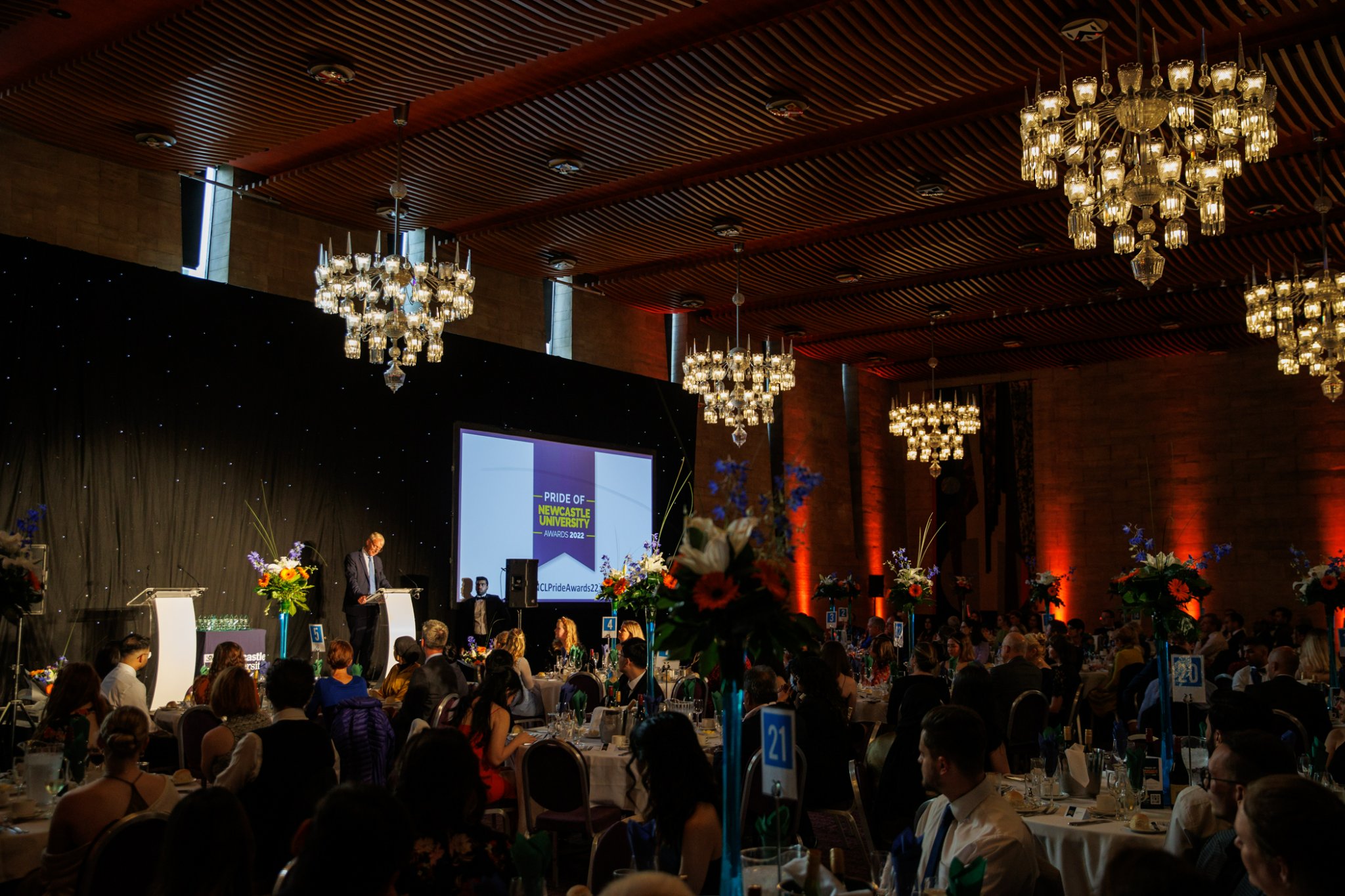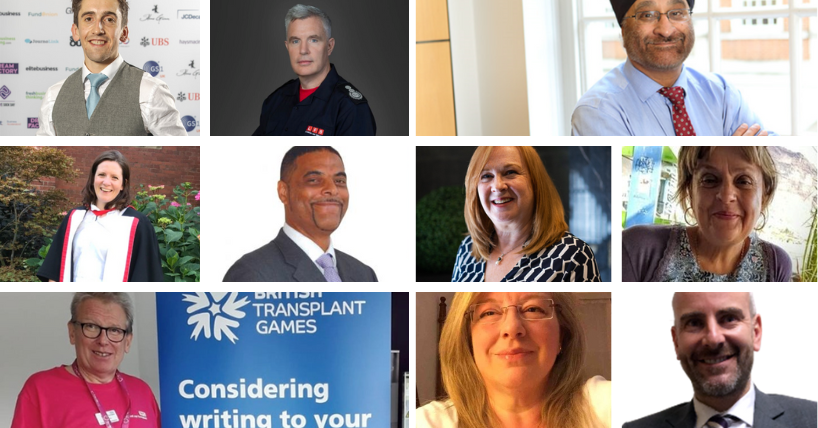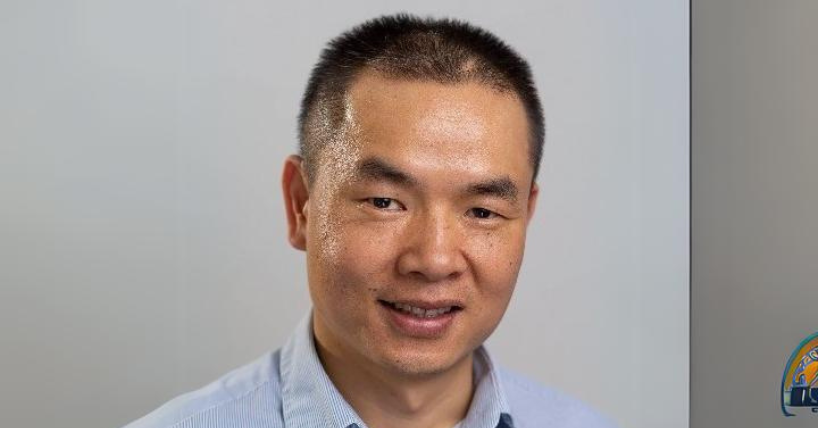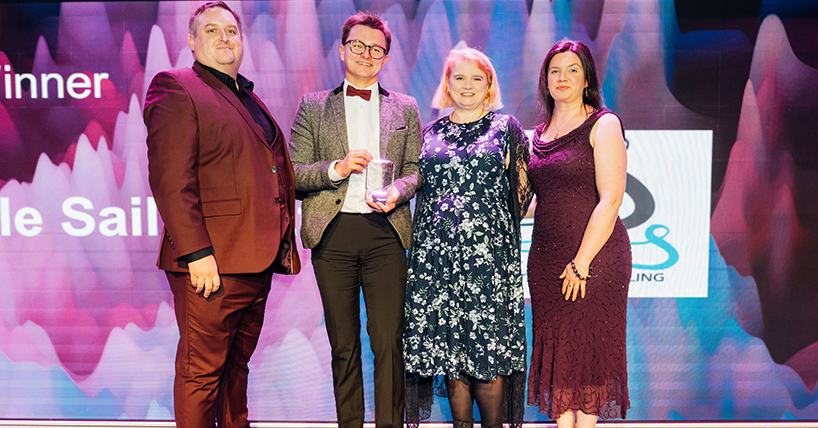Inspirational Alumni
We take immense pride in the achievements of our alumni, who have made significant contributions to their respective fields and communities.
Professor Sir John Burn
John became one of the first clinical geneticists in the UK following his studies. He is currently Professor of Clinical Genetics at Newcastle University. Formerly, he was Director of the Institute of Genetic Medicine, Chief Investigator of CAPP, and Executive Director of Global Variome. He led the regional NHS Genetics Service for 20 years and helped to create the Centre for Life. He was knighted in 2010 and chosen as one of the first 20 ‘local heroes’ to have a brass plaque on Newcastle Quayside. In 2017, he was appointed as the new Chairman of The Newcastle upon Tyne Hospitals NHS Foundation Trust and is also a Non-Executive Director of NHS England.
Professor of Clinical Genetics
(BSc Human Genetics 1973, MBBS 1976, MD 1991)
Dianne Nelmes
Dianne is known as the 'Queen of Daytime TV' and is the force behind classic TV shows such as This Morning with Richard and Judy. Dianne started her career as a reporter and executive producer on the award-winning public affairs show World in Action and went on to launch the well-known Saturday light entertainment shows You’ve Been Framed and Stars In Their Eyes. In 1998, she was appointed the first ever Controller of Daytime Television at ITV and created the long-running and headline grabbing show Loose Women. She left ITV to become the managing director of Liberty Bell, an independent documentary production company.
TV producer
(Politics and Economics)
George Clarke
George made his TV debut for the Channel 5 show, Build a New Life in the Country. He then went on to present A Dream Home Abroad. In 2008, he moved to Channel 4, where he has presented The Restoration Man, George Clarke’s Amazing Spaces and 2015’s Amazing Spaces Shed of the Year. In 2014, George became the youngest person to be awarded honorary membership of the Royal Institute of Chartered Surveyors (RICS). He is an ambassador for the Prince’s Regeneration Trust and for the housing for homelessness charity, Shelter. He was a visiting lecturer at Newcastle from 2001-2003.
Architect, presenter and writer
(BA Architectural Studies 1995, Cert Architectural Practice 1996)
Rowan Atkinson CBE
Rowan shot to fame as the star and co-creator of the satirical sketch show Not the Nine O’Clock News. He then starred in a number of well-loved TV comedies, including Blackadder and The Thin Blue Line, before achieving global success and acclaim with the adventures of his character Mr Bean. In recent years, he has appeared in several feature films, as well as enjoying a successful theatre run in the West End. Rowan was awarded a CBE in the 2013 Birthday Honours for services to drama and charity and has won two BAFTAs.
Actor, comedian and screenwriter
(BSc Electrical and Electronic Engineering 1975)
Dr Zoe Williams
Whilst completing her second year as a qualified doctor in hospitals in Newcastle, Zoe received the calling to become a Gladiator on Sky 1’s revival of the classic show. She saw her role as a doctor and as a Gladiator complimenting each other, and used the opportunity to promote diet and exercise to a wider audience. Since Gladiators, Zoe has become the resident doctor on ITV’s popular daytime show This Morning. She has presented across the BBC network, including BBC News broadcast, Horizons and Trust Me I’m a Doctor.
General Practitioner, media personality, fitness and physical activity expert
(MBBS Medicine 2007)
Sir Terry Farrell CBE
Terry is the brains behind many award-winning buildings, including the largest railway station in the world, Guangzhou Station in China. In 2016, he was made an Honorary Freeman of his hometown Newcastle and for his many contributions to Newcastle University, it was decided in 2019 that the former Claremont Building would become the Sir Terry Farrell Centre. Throughout his career, Terry has championed urban planning and helped shape government policy. As recognition of this, in 2013 he was voted the individual who made the Greatest Contribution to London’s Planning and Development over the last 10 years.
Architect and designer
(Architecture 1961, Honorary DCL 2000)
Lisa Nandy MP
Lisa is a British Labour Party politician. She has been the Member of Parliament for Wigan since 2010, having served under Jeremy Corbyn as Shadow Secretary of State for Energy and Climate Change from September 2015 until June 2016. Preceding this, she had served as Shadow Minister for Children and then Shadow Minister for Charities. Since being elected Lisa has campaigned in Parliament to tackle child abuse, to save the Education Maintenance Allowance and against human rights abuses in Palestine. She has fought against low pay and zero hours contracts and campaigned against growing poverty in Wigan and across the country.
British Labour Party politician
(BA Hons Politics 2001)
Phil Beahon
Phil is a co-founder, with his brother Tom, of the premium sportswear brand Castore. Before University, Phil had a brief career as a professional cricketer and his brother is a former professional footballer. Producing sportswear with a five-year guarantee and selling mainly through their own website, Castore is now sold in over 50 countries and has raised over £5.5m to date from major investors, including from New Look founder Tom Singh. In 2018, he was named as one of the Forbes 30 Under 30 for Retail and eCommerce in Europe and also announced that they had signed Andy Murray to represent the brand.
Co-founder of sportswear brand Castore and eCommerce entrepreneur
(LLB 2014)
Charlie Webster
Charlie has presented football, boxing and motor racing for Sky, BBC, and ITV, as well as appearing on shows such as This Morning, Good Morning Britain, The Wright Stuff and This Week. She has also hosted the World's Strongest Man for Channel 5. She is a passionate and outspoken women’s rights campaigner, specifically on sexual and domestic abuse, and in 2014 was appointed to a Ministry of Justice Victim’s Panel, to advise ministers on how to improve the criminal justice system. She is also a special ambassador for Malaria No More UK, after falling ill with the disease in 2016.
Broadcaster and Women's Rights campaigner
(BA English Language and Linguistics 2004)
Kate Adie CBE
Kate proved her worth on national television when asked to cover the London Iranian Embassy siege for the BBC. From then came an illustrious and adventurous career reporting stories from some of the late 20th Century’s major international crises, including The Falklands, Libya, The Gulf War and Bosnia. She won several news awards, including two Monte Carlo International TV News Awards, three RTS News Awards and 2 BAFTAs. In 1990, she received an Honorary MA from Newcastle University and is a Commander of the Most Excellent Order of the British Empire. Kate stepped back from front-line reporting in 2003.
Journalist
(BA Scandinavian Studies 1967, Hon MA 1990)
Susannah Rodgers MBE
Susannah was a member of the British Para Swimming World Class Podium programme from 2011 to 2016 and has competed at both the London 2012 and Rio 2016 Paralympic Games. During her career she won 30 international medals, including 17 Gold. She has held European and British records in the 50m Butterfly and 400m freestyle (S7 category). Susannah retired from swimming in 2017. She is a Trustee for the London 2012 Legacy programme Spirit of 2012, and Non-Executive Director on the Board of the British Athletes Commission as well as the GLL Sport Foundation. She is Patron for London Disability Swimming Club and Ambassador for the GLL Greenwich Starting Blocks programme and was awarded the Freedom of the City of London in 2013, and an MBE in 2017.
Former British Paralympic Swimmer
(BA Modern Languages 2005)




